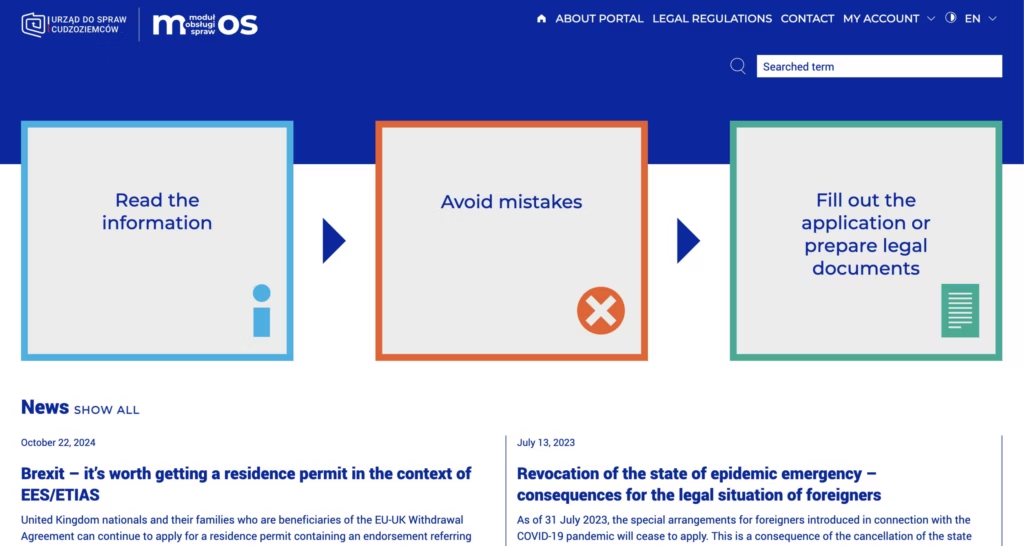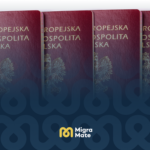
Online Submissions via MOS: New Way to File Residence Permit Applications
On December 3, 2024, a new bill was drafted proposing significant changes to the residence application process. The most notable amendment outlined in the bill is the transition from the current paper-based application system, which requires submission in person at the immigration office (voivodship office), to an electronic system where applications can be submitted online via the digital platform MOS – Moduł Obsługi Spraw.
Current Legal Framework
At present, foreigners must submit paper-based applications for residence permits in person at the immigration office. During this in-person visit, officials collect fingerprint impressions, and applicants must present their original passport and other required documents.
In cases where an in-person submission is not possible—for example, due to unavailable appointment slots—alternative methods are permitted. Applications can be submitted at the document submission office (Biuro Podawcze urzędu) or sent via Poczta Polska. However, even in these cases, applicants are later required to appear at the immigration office to complete necessary formalities. Failure to do so results in the application being left unprocessed.
The MOS platform, which has been optional until now, has operated inconsistently across different voivodeships. While the platform allowed foreigners to fill out and submit their applications online, it did not legally constitute formal submission. To officially file an application, it still had to be printed, signed, and physically delivered to the immigration office.
Proposed Changes
The draft bill introduces changes to the application process for:
- Temporary residence permits,
- Permanent residence permits, and
- EU Long-term residence permits.
The new law aims to implement an electronic submission system through MOS. Applicants will be able to complete and submit applications online, along with attachments, using a qualified electronic signature, personal signature, or trusted profile signature (profil zaufany).
For individuals who don’t have access to the necessary tools or devices to submit applications online, voivodeship offices will be required to provide assistance with the process. The idea behind the MOS platform is to simplify the application process, but only time will tell how effectively this will be achieved.
The authors of the bill believe the implementation of an electronic application system will streamline administrative procedures, shorten processing times, reduce the workload for voivodeship offices, and make it easier for foreigners to submit their applications. It sounds very ambitious, but given the current modus operandi of the immigration authorities, many remain skeptical.
NOTE: Applications for temporary, permanent, or EU long-term residence permits submitted through any method other than MOS will no longer be processed under the proposed changes.
Will the Entire Process Be Fully Electronic?
No. While the electronic system will simplify submission, personal appearance at the voivodeship office will still be mandatory for certain steps, including:
- Verifying the applicant’s identity,
- Taking fingerprints, and
- Collecting a signature.
These formalities will take place after the electronic submission and based on a notice from the immigration office.
Summary
The draft bill represents a step toward modernizing administrative procedures and aligning them with EU standards. The shift to electronic submission is expected to enhance efficiency, reduce processing times, and improve accessibility for foreigners.
However, as it stands, the bill does not foresee the role of representatives (proxies) in the application completion and submission process. This could lead to more errors, extended processing times, and potential abuse by dishonest agents. Introducing solutions that allow representatives to assist with preparing and submitting applications—such as dedicated accounts for representatives within the MOS system—could significantly improve the system’s efficiency and actually reduce the burden on offices. Hopefully, the legislator will consider this.
The planned implementation date for these changes is the first quarter of 2025.



